40 moody diagram calculator
Moody Chart Calculator: How Does It Work? The underlying equation that was used to create the Moody chart can be solved to obtain a numerical result for the Darcy friction factor . Each of the curves on a Moody diagram represent the result of an equation that describes the Darcy friction factor as a function of the relative roughness and Reynolds number. The equations used in this program represent the Moody diagram which is the old-fashioned way of finding f. You may enter numbers in any units, so long as you are consistent. (L) means that the variable has units of length (e.g. meters). (L 3 /T) means that the variable has units of cubic length per time (e.g. m 3 /s).
Try the Free Moody Chart Calculator app for Android at the Google play, here! Learn more about the Moody Chart Calculator, here.here.
Moody diagram calculator
Try the Free Moody Chart Calculator app for Android at the Google play, here! Learn more about the Moody Chart Calculator, here. If you want to be more scientific about it, you can calculate the appropriate flow parameters and then refer back to your Moody Diagram to get a "real" answer. But now, thanks to the miracle of Excel, you can use your trusty old Moody Diagram AND have an instant answer at the push of a button. Moody Chart Calculator. The Moody chart is based on the solutions to the Colebrook equation; this calculator uses Newton's method for finding zeros to solve the Colebrook equation. Colebrook equation Newton's method How this calculator was made and how you can implement your own will be explained here. First, the simpler results from the Moody ...
Moody diagram calculator. In engineering, the Moody chart or Moody diagram (also Stanton diagram) is a graph in non-dimensional form that relates the Darcy-Weisbach friction factor f D, Reynolds number Re, and surface roughness for fully developed flow in a circular pipe. It can be used to predict pressure drop or flow rate down such a pipe. The friction factor f can be determined using the Moody diagram shown in Figure 4.2 as follows: 1. For the given flow rate, liquid properties, and pipe size, calculate the Reynolds number of flow using Equation (4.8). 2. Calculate the relative roughness (e/D) of the pipe by dividing the pipe absolute roughness by the inside diameter of the pipe. From Reynolds number and roughness. Serghide's solution to the Colebrook-White equation is used to approximate the Darcy friction factor within full flowing pipes with a Reynolds number (Re) above 4000. It tends to be very accurate to the iteratively determined Colebrook-White equation - within ~30 ppm accuracy. Download the freeMoody Chart Calculator app from Google Play here. Learn more about the Moody Chart Calculator here. Reynolds Number where, Reis the Reynolds Number ρis the density of the fluid vis the velocity of the fluid Dis the diameter of the pipe μis the viscosity of the fluid Relative Roughness where, εis the roughness of the pipe
Nov 23, 2021 · One of the commonly used approximation is given by Lewis Moody, otherwise known as Moody chart or Moody diagram. This calculator utilizes Moody's approximation to determine the Darcy friction factor. Moody's approximation or otherwise known as Moody equation is given as: f = 0.0055 ( 1 + (2 * 10 4 * k/D + 10 6 /Re) 1/3) friction factor, f, rather than a graph like the Moody diagram. There are indeed equations available that give the relationships between Moody friction factor and Re & ε/D for four different portions of the Moody diagram. The four portions of the Moody diagram are: i) laminar flow (Re < 2100 - the straight line at the left side of the Moody ... Why read values from a Moody diagram, make iterative calculations to get friction factor, or use online calculators, when you can get a pipe flow-friction factor calculator Excel Spreadsheet for only $19.95? Read on for information about the Darcy Weisbach equation and its use in an Excel spreadsheet as a friction factor/pipe flow calculator. common method of obtaining a value for f is graphically, from the Moody friction factor diagram, first presented by L. F. Moody in his classic 1944 paper in the Transactions of the ASME. (Ref. #1). The Moody friction factor diagram, shown in the diagram below, is now available in many handbooks and textbooks and on many websites.
Moody Chart Calculator. The Moody Chart Calculator is a must have app for any engineering student taking fluid dynamics or any piping system designer. It allows one to quickly compute a friction factor given a Reynolds number and relative roughness. Works for both laminar and turbulent flows. Results are accurate because the app actually solves ... The Moody diagram. The friction factor is used to calculate the pressure drop due to the flow of a fluid in a pipe. It represents the interaction in between the fluid and the pipe. There are different ways to calculate it, one can be graphical, using a Moody graph. Note that the friction factor used here is Darcy (also called Darcy-Wesibach or ... The Moody chart or Moody diagram is a graph in non-dimensional form that relates the Darcy-Weisbach friction factor f D, Reynolds number Re, and relative roughness for fully developed flow in a circular pipe. It can be used for working out pressure drop or flow rate down such a pipe. Click on Chart image to get larger Moody Chart. Gas Pipeline Pressure Loss From The Moody Diagram Calculator Module. Calculate pressure loss for single phase gas pipelines and ducts using the Moody Diagram. fd = 64/Re : Hagen-Poiseuille laminar flow equation. 1/√fd = -2 log10 (r/3.7 + 2.51 / (Re √fd)) : original Colebrook White equation.
The friction factor for turbulent flow is found using the Colebrook equation which represents the Moody diagram. f is the Moody friction factor. The pipe flow equations are well-accepted in the field of fluid mechanics and can be found in many references such as Cimbala and Cengel (2008), Munson et al. (1998), and Streeter et al. (1998).
One of the advantages of this program over the Moody diagram is that graphical interpolations are not needed; each friction factor is computed directly from the ...
The Moody diagram was created in the early 1940’s before the use of calculators and computers became commonplace. Lewis Moody solved the Colebrook equation for many different combinations of Reynolds number and roughness height and plotted them on a chart. Moody Diagram for Smooth Pipe
Moody Diagram For The Determination Of Flow Regimes With Regard To Download Scientific Diagram. Free Download Moody Diagram Calculator Wallpapers Pictures 812x508 For Your Desktop Mobile Tablet Explore 46 Wallpaper Calculator Chart How To Calculate Wallpaper Yardage How Much Wallpaper Do I Need.
factor diagram, shown in the diagram below, is now available in many handbooks and textbooks and on many websites. When using Excel spreadsheets for pipe flow calculations with the Darcy Weisbach equation, it is more convenient to use equations for the Moody friction factor, f, rather than a graph like the Moody diagram. There are
1. How to find the friction factor graphically ? The Moody diagram. The friction factor is used to calculate the pressure drop due to the flow of a fluid in a pipe.
Let's imagine we calculate a Reynolds Number of 4x10^4 (yes I'm rigging for simplicity). We see that this is in the Reynolds Number range for turbulent flow, so we proceed with the Moody Chart. Next, let's say we calculate a unitless relative roughness of 0.003.
of length, L, and diameter, D, with Moody friction factor equal to fm. The frictional head loss will be in ft for U.S. units and in m for S.I. units. g is the acceleration due to gravity. (g = 32.17 ft/sec2 = 9.81 m/s2) fm is the Moody friction factor, which is dimensionless and is a function of Reynolds
SI based Moody Diagram. The Moody friction factor - λ (or f) - is used in the Darcy-Weisbach major loss equation. The coefficient can be estimated with the diagram below: If the flow is transient - 2300 < Re < 4000 - the flow varies between laminar and turbulent flow and the friction coefiicient is not possible to determine.
The Moody chart (also known as the Moody diagram) is a graph in non-dimensional form that relates the Darcy friction factor, Reynolds number, and the relative roughness for fully developed flow in a circular pipe. Reynolds Number. The Reynolds number is the ratio of inertial forces to viscous forces and is a convenient parameter for predicting ...
Calculate water pipeline outlet pressure from volume flow rate and diameter using the Moody diagram. The Darcy-Weisbach friction factor may be calculated using either the Hagen-Poiseuille laminar flow equation, the original Colebrook White equation, the modified Colebrook White equation, or may be user defined.
Result from Colebrook equation (Moody chart): This worksheet enables a user to specify a Reynolds number and a roughness factor, and the Darcy friction factor for pipe flow is calculated. Do not mess with the hidden cells below: J. M. Cimbala, written August 2003; latest update 05 January 2012 Recritical e/D
The friction factor or Moody chart is the plot of the relative roughness (e/D) of a pipe against the Reynold's number. The blue lines plot the friction factor for flow in the wholly turbulent region of the chart, while the straight black line plots the friction factor for flow in the wholly laminar region of the chart. In 1944, LF Moody plotted ...
Moody Chart Calculator. The Moody chart is based on the solutions to the Colebrook equation; this calculator uses Newton's method for finding zeros to solve the Colebrook equation. Colebrook equation Newton's method How this calculator was made and how you can implement your own will be explained here. First, the simpler results from the Moody ...
If you want to be more scientific about it, you can calculate the appropriate flow parameters and then refer back to your Moody Diagram to get a "real" answer. But now, thanks to the miracle of Excel, you can use your trusty old Moody Diagram AND have an instant answer at the push of a button.
Try the Free Moody Chart Calculator app for Android at the Google play, here! Learn more about the Moody Chart Calculator, here.
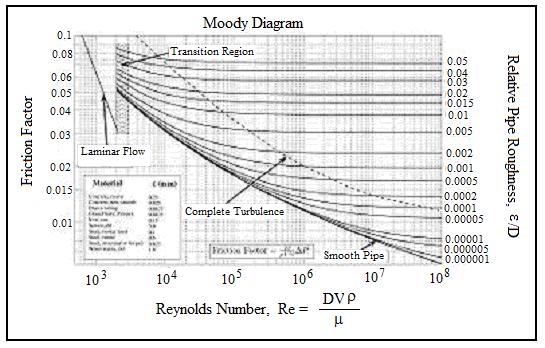

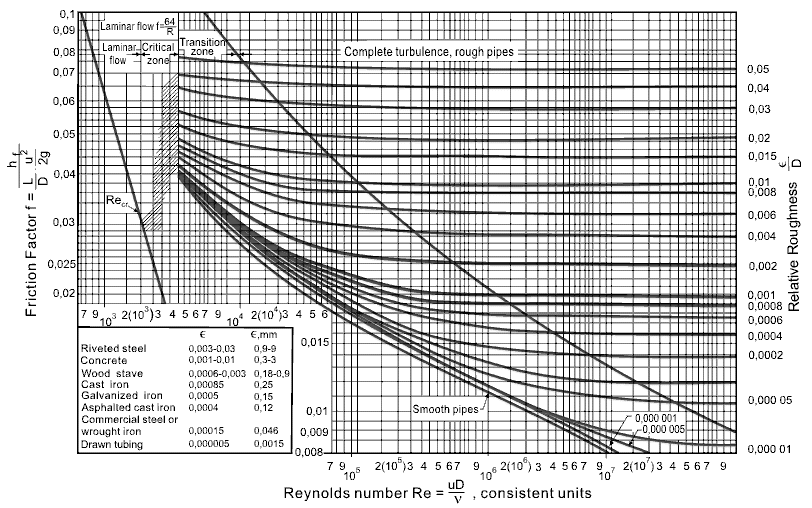

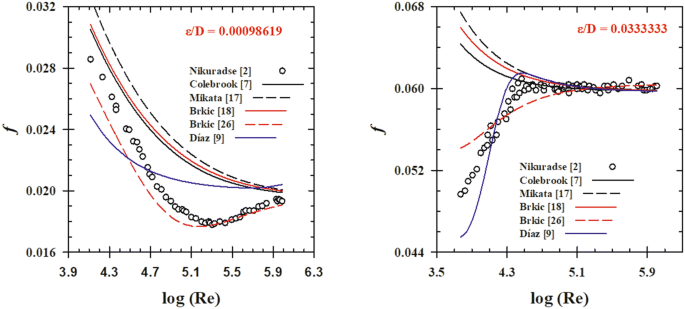
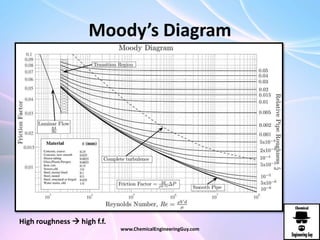
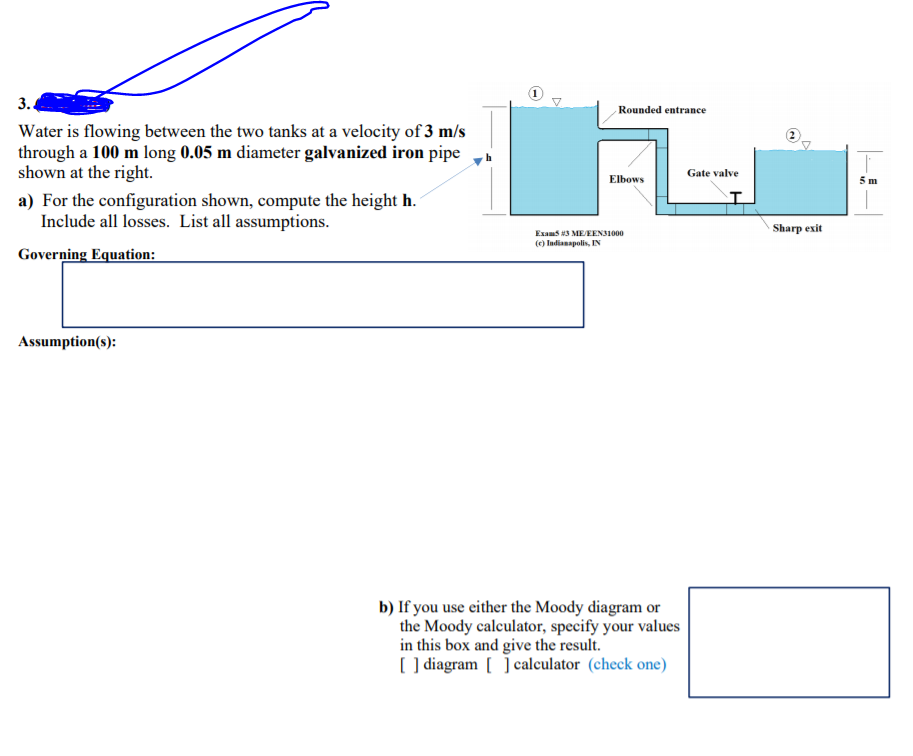

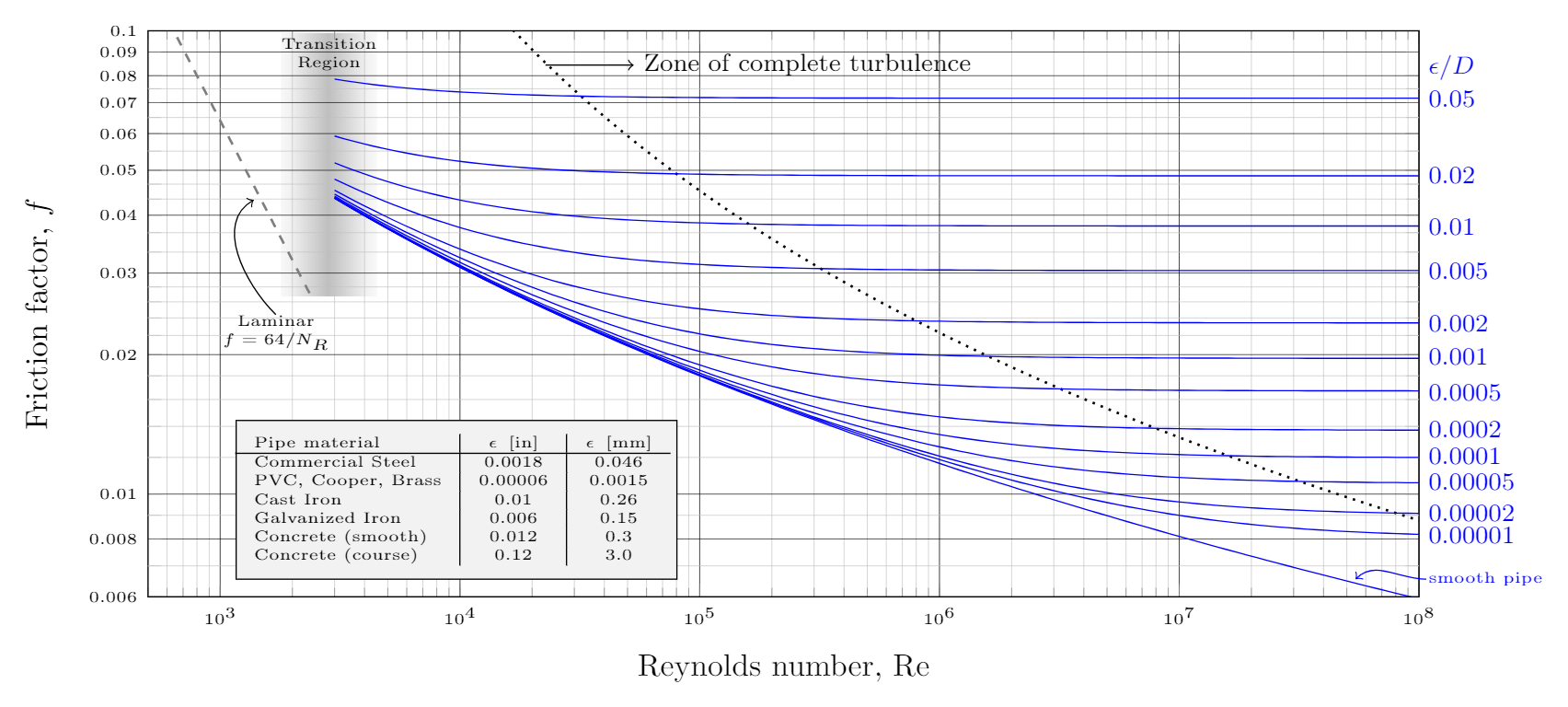





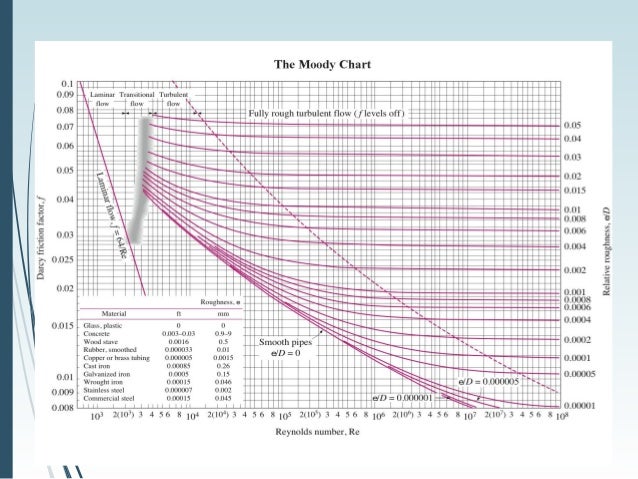









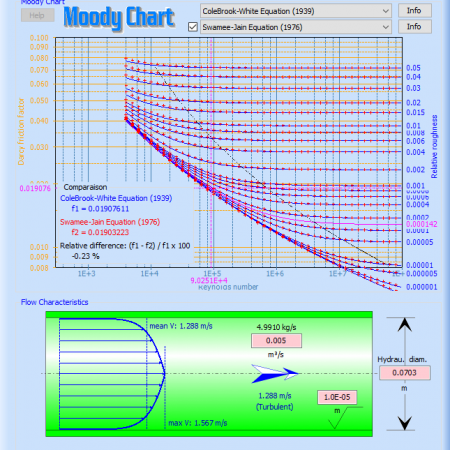



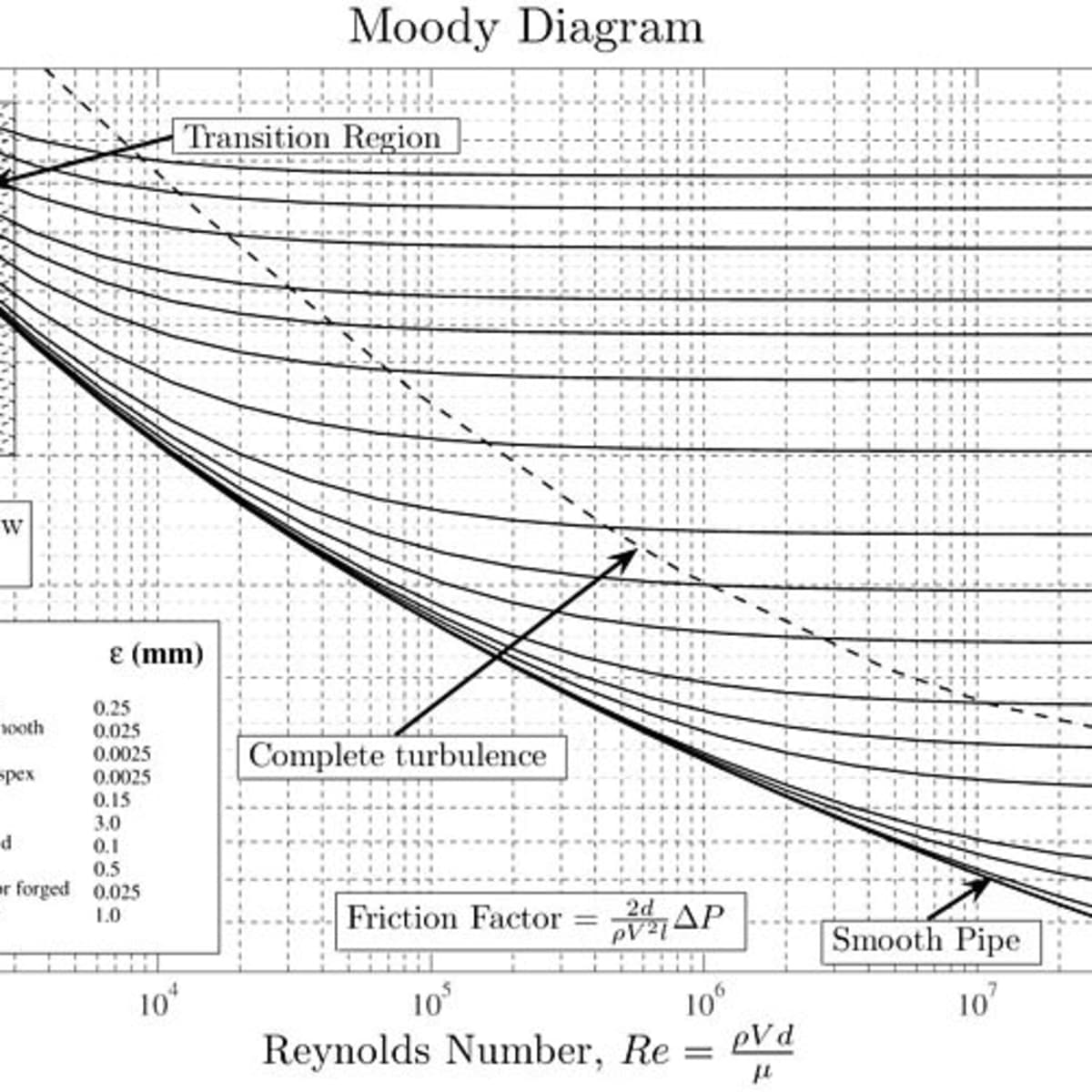

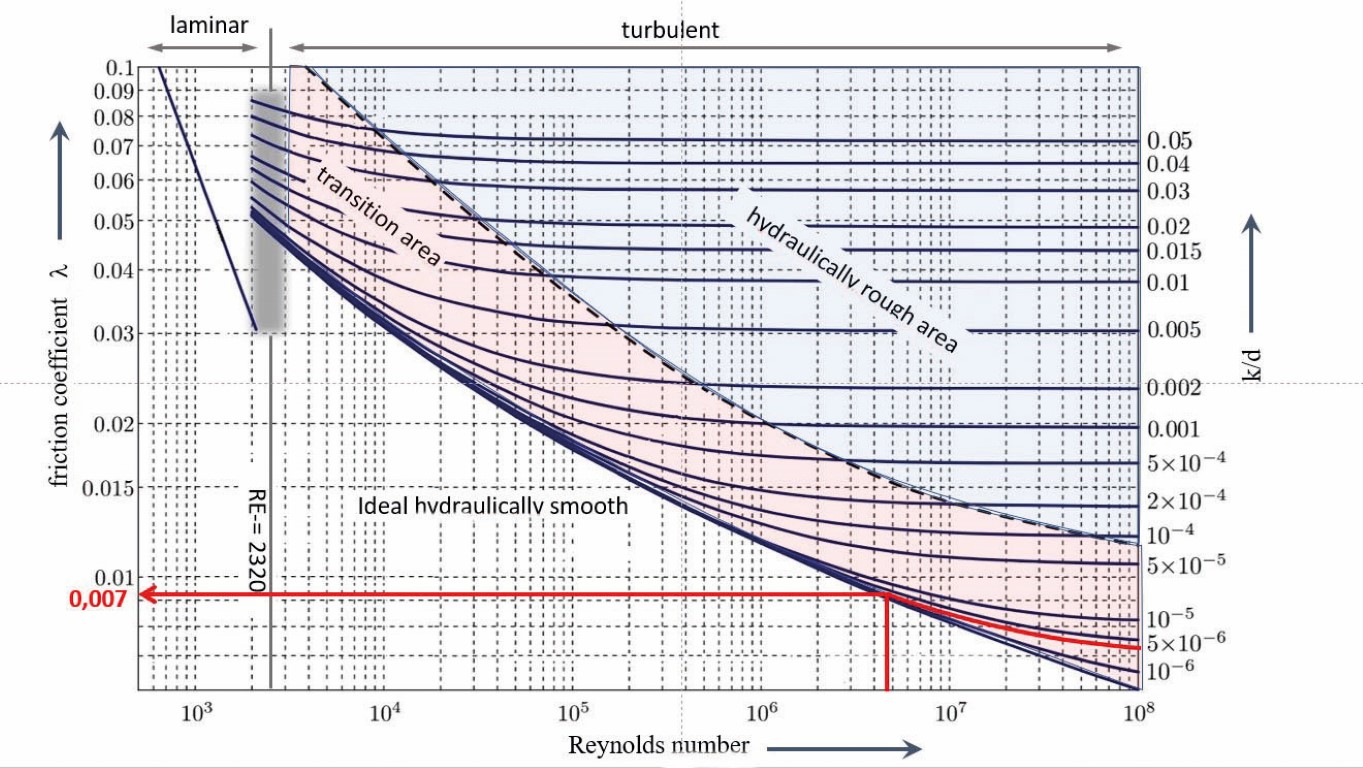

Comments
Post a Comment